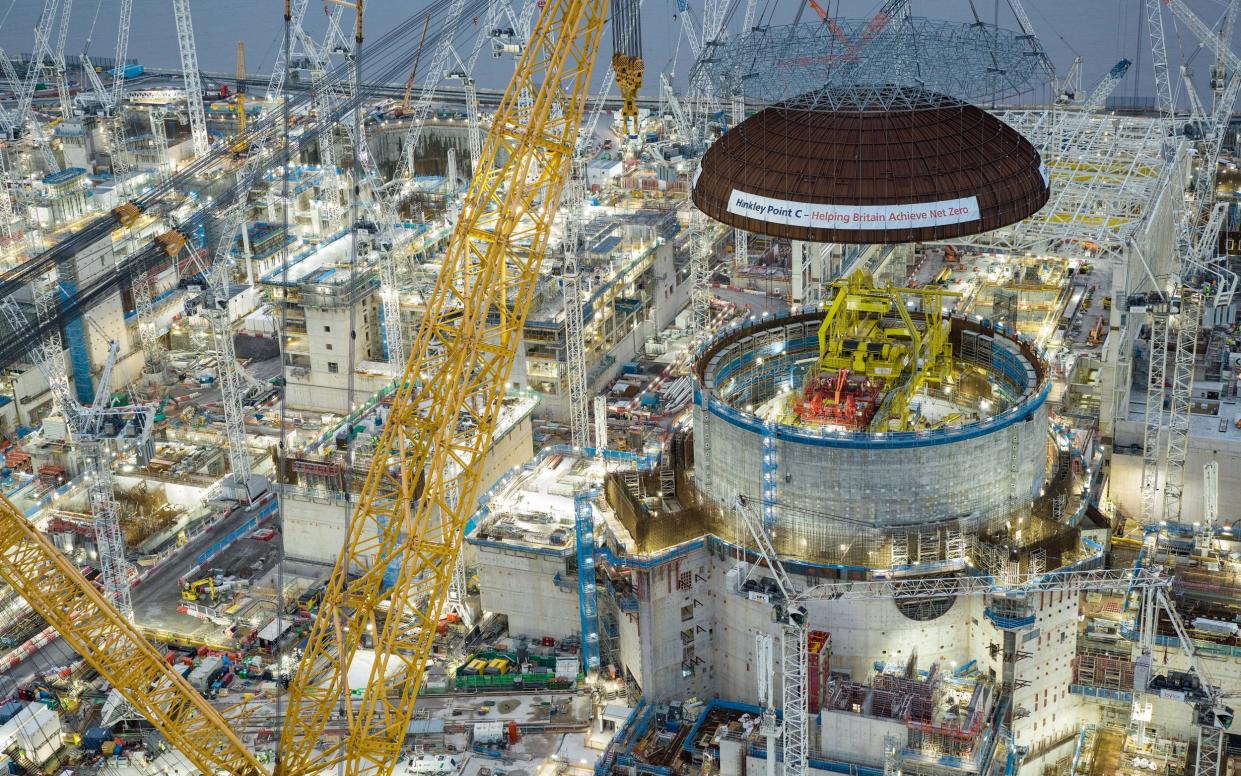UK to launch Europe’s first Haleu uranium project

Britain is to become the first European country to launch a programme for high-tech uranium so the next generation of nuclear reactors are not dependent on imports from Russia.
The Government has allocated £300 million to develop high-assay low-enriched uranium (Haleu) in a bid to cut Vladimir Putin out of the UK’s future energy needs.
While the current nuclear fleet primarily runs on uranium fuel enriched up to 5 per cent, the next generation of reactors require uranium enriched to between 5 and 20 percent – known as Halue.
However, this fuel is currently only commercially produced in Russia, potentially leaving Britain at the mercy of Putin as the Government prepares for the launch of advanced reactors in the early 2030s.
By launching the UK’s own programme, ministers hope to sidestep Russia and carve out an opportunity to supply the world with specialist nuclear fuel.
Production hub
A Haleu production hub is planned for the North West, with the Government providing an extra £10 million to develop the skills and sites to produce other advanced nuclear fuels.
Claire Coutinho, the Energy Secretary, said: “We stood up to Putin on oil and gas and financial markets; we won’t let him hold us to ransom on nuclear fuel.
“Britain gave the world its first operational nuclear power plant, and now we will be the first nation in Europe outside of Russia to produce advanced nuclear fuel.
“This will be critical for energy security at home and abroad and builds on Britain’s historic competitive advantages.”
The Department for Energy Security and Net Zero (DESNZ) said that the plans would also help build new supplies of cheap and clean domestic power, supporting the transition to net zero.
Ministers are targeting using nuclear energy to deliver up to 24GW of power by 2050 – a quarter of the country’s electricity needs.
Faster and cheaper
The Government believes that advanced modular reactors will play a key role in the UK’s nuclear revival because, like small modular reactors, they are smaller and can be manufactured in factories.
It is hoped that they could transform how power stations are built by making the construction process faster and cheaper.
Many designs also have the potential for applications beyond low-carbon electricity generation, such as producing hydrogen or industrial heat.
DESNZ said the plans built on the UK’s wider work to displace Russia from the global nuclear fuels market, particularly in uranium conversion services, with the Government and industry together investing up to £26 million to bring this capability back to Britain by the end of the decade.
At December’s COP28 summit in the United Arab Emirates, the UK also re-stated its commitment to working with G7 nuclear countries to reduce global dependence on Russian fuel.
DESNZ said that further details on the locations for its Haleu production hub would be confirmed subject to a commercial process and funding awards, with more detail on the siting of new nuclear reactors following in the Government’s forthcoming nuclear roadmap.

 Yahoo News
Yahoo News 
